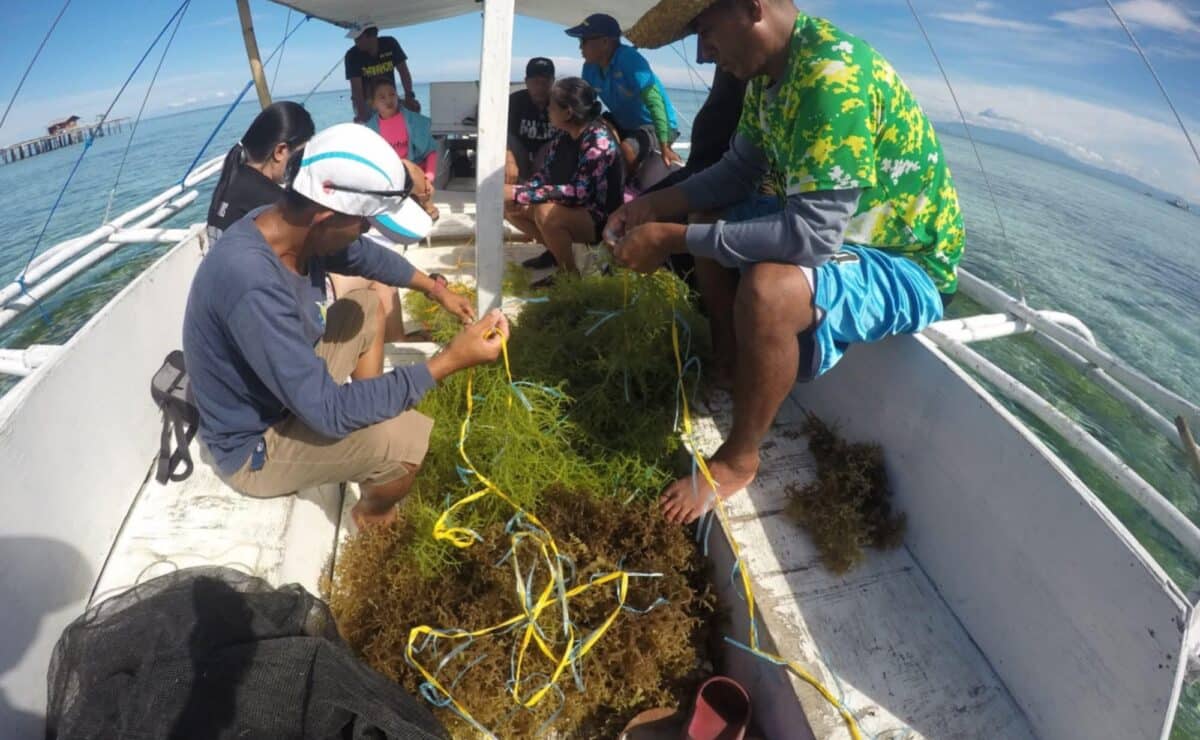Our Terms & Conditions | Our Privacy Policy
Leyte rolls out science-driven revival of seaweed industry

The Leyte provincial government aims to boost the seaweed industry by adopting modern technology. Photo courtesy of the Leyte Provincial Agriculture Office
TACLOBAN CITY — Leyte’s seaweed industry is set for a major revival as the provincial government rolls out scientific interventions to address declining yields linked to global warming, according to the Provincial Agriculture Office (PAO).
The initiative, spearheaded by Governor Carlos Jericho Petilla, is being carried out in collaboration with the Department of Science and Technology, the Bureau of Fisheries and Aquatic Resources, Eastern Visayas State University-Carigara Campus, De La Salle University, and local government units.
Article continues after this advertisement
The province has acquired biosensors for deployment in major seaweed farms, beginning in Barangay Dawahon in Bato town.
The devices monitor key parameters such as dissolved oxygen, salinity, pH level, temperature, and light intensity—factors essential for seaweed growth and yield. They also detect early signs of disease, giving farmers time to prevent large-scale losses.
“This technology gives us real-time data to help farmers decide which varieties to plant and when, ensuring higher yields and resilience against environmental stress,” the PAO said.
Active seaweed farms in Leyte are located in Barangay Dawahon in Bato, Barangays Sabang and Kawayan in Tabango, Barangay Libjo in Merida, Barangay Cambinoy in Palompon, and Barangay Gov. E. Jaro in Babatngon, with expansion plans in Calubian.
The province cultivates three main varieties: Eucheuma denticulatum, Kappaphycus alvarezii, and Kappaphycus estrianum, which are primarily marketed in Tacloban and Cebu.
Article continues after this advertisement
With global demand for carrageenan—an extract from seaweed—on the rise, officials believe the use of biosensors could help Leyte farmers regain competitiveness and sustain a livelihood that supports hundreds of coastal families.
According to the Department of Trade and Industry, the Philippines is among the world’s leading producers of carrageenan, with “Philippine-grade carrageenan” recognized as one of the most reliable inputs for meat processing, processed food, dairy products, condiments, personal care items, and pet food./mcm
Your subscription could not be saved. Please try again.
Your subscription has been successful.
Images are for reference only.Images and contents gathered automatic from google or 3rd party sources.All rights on the images and contents are with their legal original owners.



Comments are closed.